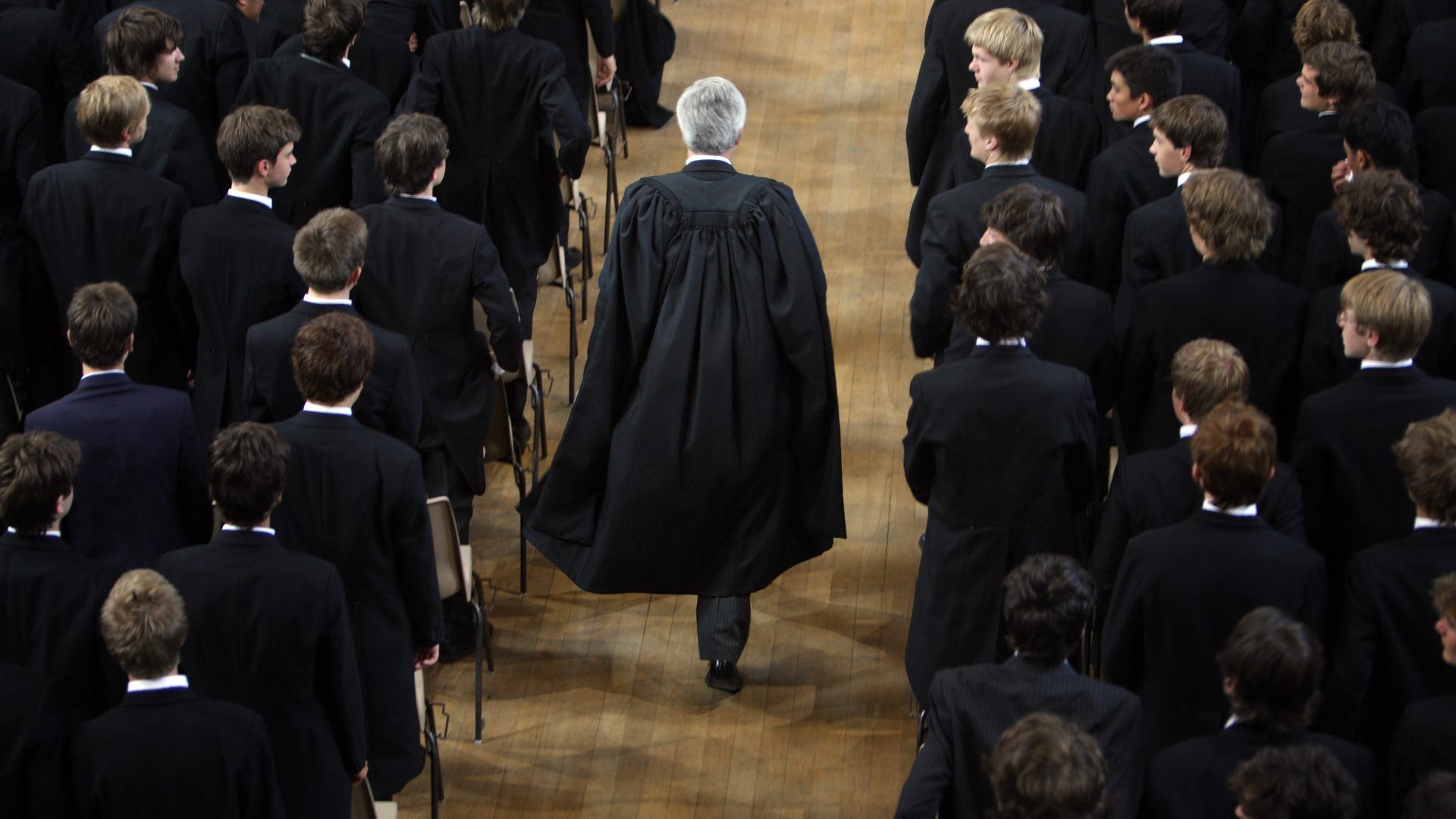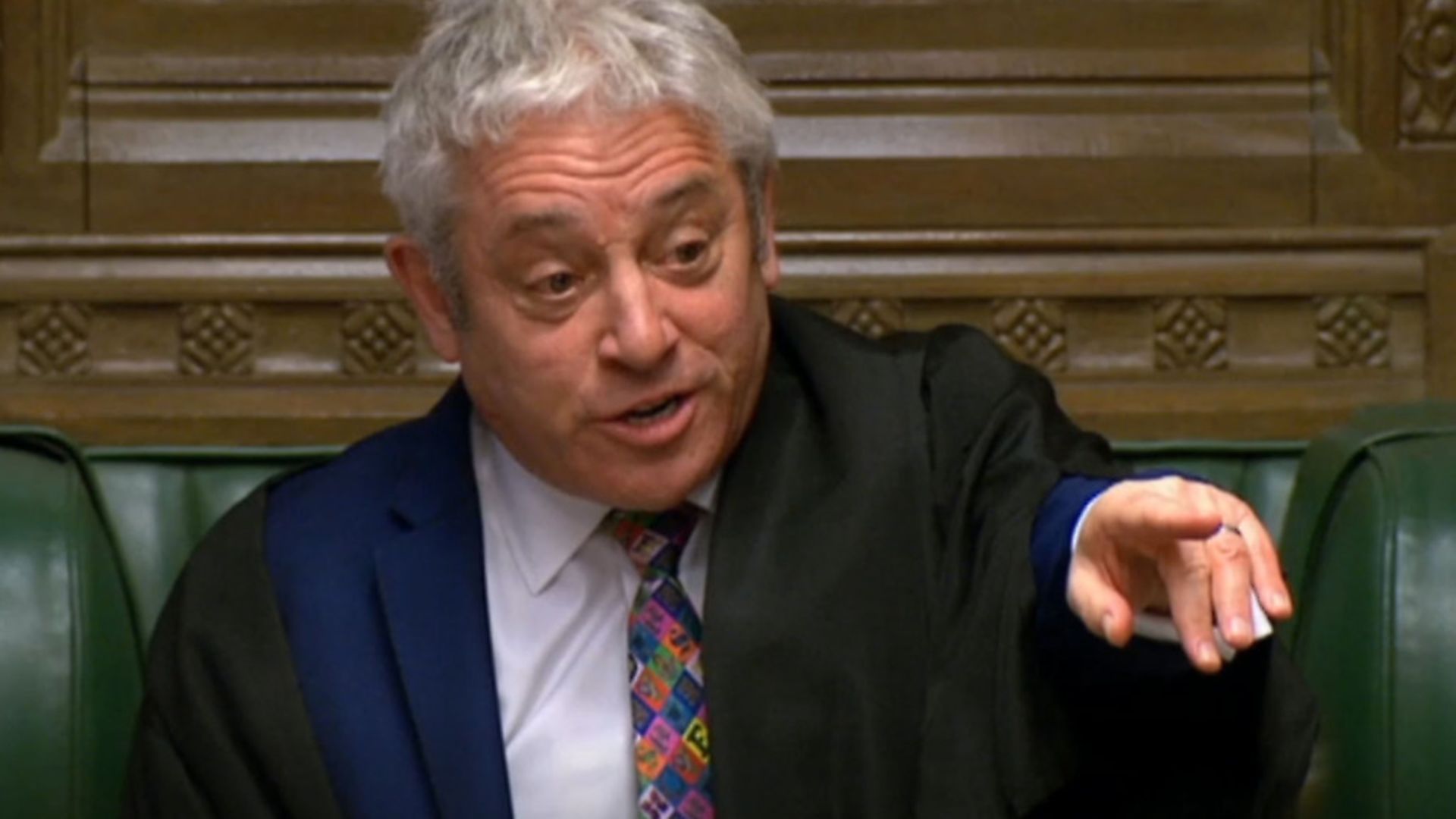What an excellent piece “Eton, we have a problem” (TNE, #284) was, and how timely it has turned out to be. Those who taught Boris Johnson and Jacob Rees-Mogg at Eton must be so proud to hear one comparing Ukraine’s struggle for freedom to Brexit and the other saying the PM should get a free pass for breaking lockdown rules because there’s a war on.
George Bartlett
Shamefully, Johnson has drawn a comparison between the courage and determination of the Ukrainians to defend their independence and the desire of a minority in Britain to inflict internal damage on their country. It is, however, helpful for him to remind us that there is a parallel between his lies about Brexit and Putin’s lies about his war against democracy.
Phil Green
Without the benefit of clairvoyance, I do not know what will be in Rishi Sunak’s spring statement. However, I feel safe enough to predict that it will not include taking up Fiona Millar’s advice and ending the charitable status of schools like Eton, which would save the country £100m per year. Pity.
James Gabriel
Southampton
Broken Home
I read James Ball’s “Our broken Home Office” (TNE, #284) with interest and agreement. The department was ungovernable under Sajid Javid, not known for his hardline style of management, and three years on nothing appears to have changed. Whoever is in charge, this entity goes on its merry, draconian way.
The Home Office has become an unwieldy behemoth with too many functions and jobs to do, adding to its dysfunctional perception. The Windrush scandal was obviously a case in point.
The latest foray into inhospitable behaviour is overburdening fleeing Ukrainian refugees with yet more bureaucracy at their time of greatest need. Yes, there is an innate fear of jeopardising Britain’s security, but this has morphed into a department scared witless of committing itself wholeheartedly to any proactive and positive measures and this rabbit-hole modus operandi carries on regardless.
Judith A Daniels
Cobholm, Great Yarmouth
Soft options
Alastair Campbell (Diary, TNE #284) wonders if Putin’s invasion of Ukraine has undermined the concept of soft power. I would say that after all the talk of democracy on its knees, and the appeal of “the strong man”, the enduring strength of a democratic way of life has been clearly revealed.
Revulsion at the use of brute force is also apparent from the reaction to this crisis.
Roger Horne
Via Facebook
It depends on whether Putin and his regime “die” of this invasion or not. If it happens, then it will be a victory for soft power and resistance. If Putin gets something in Ukraine, soft power and the international order is undermined.
Given the peaceful enlargement of the EU and Nato as nations applied to join these organisations, I’d call the soft power of the West and Europe a resounding success.
Violence is the last refuge of the incompetent, and that applies to Putin several times since 2008. What’s being tried now is the determination of Nato and the EU, not their soft power.
Lorenzo Luis Albano Farias
Via Facebook
Nuclear risk
“Putin has only one card left and the West can’t risk him playing it” (TNE, #284) was an interesting view from Paul Mason. In retrospect, rather than worrying about nuclear war, the allies could have sent battle groups and aircraft to Ukraine “on joint exercises”, much as Putin and that bumbling fool in Belarus did.
Greg Sharp
Male models
Sam Bay (“Not all men?”, Letters, TNE #283) misrepresents Bonnie Greer’s observations (“Mad, bad men”, TNE #282). Her opening words, “There is something wrong with many men” and her reference to “a certain male demographic”, make clear both her specificity and her alarm.
Bay is “disappointed to see her using the war in Ukraine to springboard into a wider statement on masculinity”. It is precisely the lack of such observations and analysis of normative hetero-masculinity and its too often brutal consequences for women, children, other men, our environment and societies that have allowed the practices of patriarchal institutions that perpetuate hierarchy, dominance, exploitation and submission, to escape scrutiny, challenge and change.
Trump and Putin are prominent examples of this model of masculinity: predicated on misogyny, homophobia, racism and heterosexism. Force and violence are central to the delivery of their ambitious fantasies of power and dominance, as this masculinity is fragile and requires them to constantly prove their manliness in opposition to “femininity”.
Historically, there have been too few men prepared to challenge institutionalised misogyny and heterosexism; too few prepared to work towards reimagining forms of masculinity that don’t promote and thrive on the subordination of women and gay men. Women have proved we cannot do it on our own. But it can and must be done, together.
Val Walsh
Crosby, Liverpool
Ideas man
I sometimes don’t know whether to laugh or cry when TNE drops through my letterbox, as I immediately contemplate what is read by a respectable audience compared with what is fed to the mass market.
I certainly agree with Paul Mason’s contention (TNE, #283) that “Britain needs new Turings to win the war of innovation”; indeed we do, and what nation could have too many? However, the man who lived in Turing’s shadow but who made his ideas reality is sadly overlooked.
From a modest background in Hackney, Tommy Flowers made it to the University of London and thence a career as Post Office Telephones research engineer. He had the brain and determination to replicate Turing’s ideas and theories in switches and cabling that made Enigma actually do something real.
What he built was the first programmable electronic computer. A true genius in his own way, and predictably treated fairly shabbily by the government, Flowers really is the kind of person Britain needs today – someone who can turn theories and concepts into reality and perhaps inspire a development where, for once, Britain might actually lead the world.
John Tibbles
Frome, Somerset
Sold out
Schadenfreude! That word is one of the German language’s greatest gifts to the world. I experienced huge waves of it when I read the article by Jonty Bloom about how farmers feel sold out by the Tories (“Fear and loathing down on the farm”, TNE, #283).
Along with almost everyone else in Britain, the farmers are discovering that there are only downsides to Brexit – more red tape than ever before, non-tariff trade barriers with our closest and most important trading partners, more difficult travel to EU countries, a trashing of Britain’s reputation in the world, a loss of growth and so much more.
Bill Cooper
Kinross
Best of Europe
Andrew Martin’s article describing his love of the Paris Metro (“Métro, Mon Amour”, TNE, #282) was The New European at its very best. The extension of existing Metro lines, and creation of new ones – Grand Paris Express – to link less prosperous suburbs, was an interesting investment to learn about.
In signing up for last weekend’s Grande Course half marathon, I hadn’t realised the connection, or its full name, la Grande Course du Grand Paris Express. So, thanks to The New European, I was armed with extra inspiration when I boarded line 1 at la Bastille and travelled with fellow runners on the RER A to the start of the race, in the Bois de Vincennes on the south-eastern edge of the city.
And what a way to spend a Sunday morning. Winding for the first few kilometres through the bois, with some welcome support from the locals, through the awakening backstreets towards the mighty boulevards of Voltaire and up to Place de la République.
The canals that followed were an unexpected delight. More streetside refreshment, then more industrial settings leading into the treat that was crossing the finish line inside the Stade de France.
I don’t know Paris well by any means and had never visited the parts through which we all ran; but I felt at home. While those who brought about our exit from the EU slowly but surely depart the scene, I’ll be enjoying what it means to me to be European – the shared experience, the joint commitment, learning together and valuing our different ways.
Charles House
Cash for cons
Here’s a good, if fairly costly, way of raising funds for Ukraine:
Find a large, empty tin. Make a new label for it and write “Poo Tin” on it. Every time Johnson or one of his ministers makes a false claim about the UK’s support for Ukrainians, or about Brexit or anything else, put £1 in the tin. If you feel so inclined, double the amount for anything Patel says about the UK’s support for refugees. If you run out of pound coins, write out an IOU. Do the same each time Putin or one of his acolytes lies about his special military operation in Ukraine. Keep a tally of both.
From time to time, empty the tin and send a corresponding amount to the DEC appeal, the British Red Cross or another suitable charity. Make sure you gift aid it, so the government is paying something for its own lies.
So far, the two sources are contributing roughly equal amounts…
Rex Nesbit
My sister has lived in Moscow for decades, and her late husband was Ukrainian. The invasion of Ukraine has, however, gone clean against our predictions. Until now, Putin has consistently used stealth and caution, making sure that we all knew what his intentions were without being able to pin anything on him.
What’s changed? Since he will be 70 this year, perhaps he felt there was only a limited time to make his mark on history. Or maybe he has a serious illness and wants to go out with a bang. Or perhaps he just got bored.
But there is another explanation for his actions and their timing. Brexit could have persuaded him that Europe was divided and vulnerable. So maybe one of the key players in this endgame may turn out to be… Nigel Farage?
Peter Kirk
Lack of rights
The recent high-handed treatment of P&O employees by the owners/ management is appalling, but sadly not unprecedented, and Brexit has only made it more likely to occur elsewhere, to the detriment of British workers.
In 1996 I was made “redundant” from my job as a full-time instrumental music teacher with Nottinghamshire County Council, but re-employed the next day on an hourly basis with no holiday pay or sick pay. In 2006, due to EU law, the actions of the council were deemed unlawful, and all of my cohort of instrumental music teachers were given full-time contracts again, with holiday pay and sick pay, a situation that remained until 2010 when the Tories got back into power.
Cuts were again the order of the day, as the (Tory) council made 10% cuts year on year for three years. After 32 years, I got early retirement in 2012, but the employment rights of those instrumental teachers left working in Notts are now as uncertain as they were for me in 1996. Similar stories can be heard from instrumental teachers in counties across the country.
Now we are out of the EU, the Tory government is able to “take back control”, which does not bode well for workers’ rights.
Robert Parker
West Bridgford, Notts
Nazanin’s loss
I hope the British government will be compensating Nazanin Zaghari- Ratcliffe for six years of her life lost, incarcerated in an Iranian prison while it indulged in political manoeuvring with the Iranian government.
Graeme Brown



